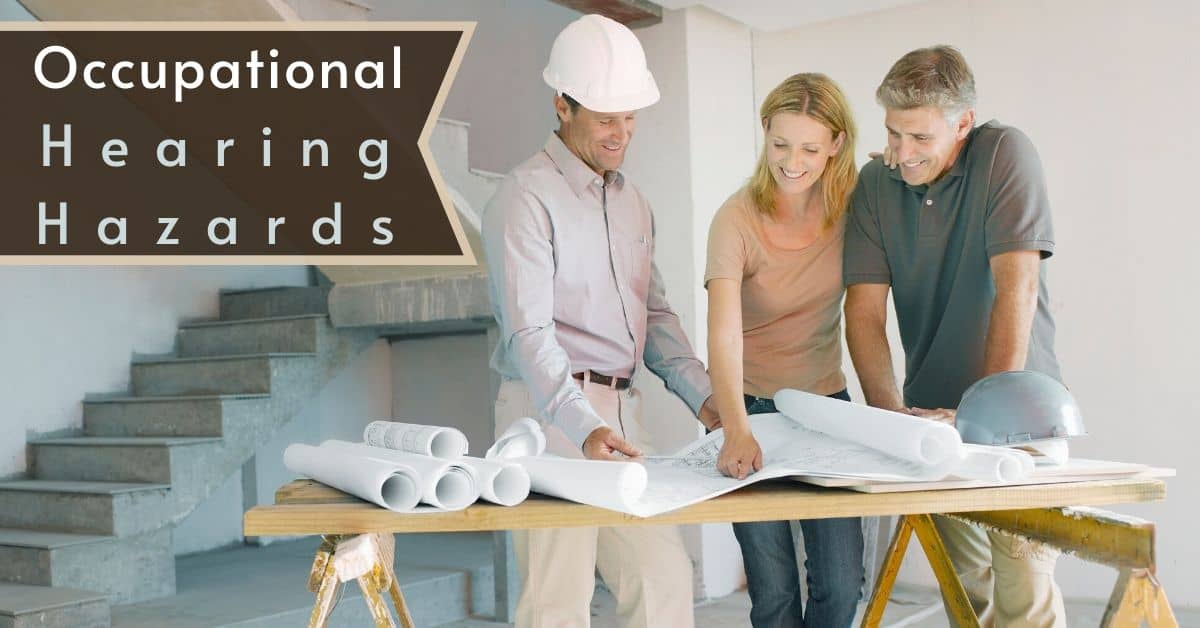- Volunteering for Hearing Health Causes - May 27, 2025
- Questions to Ask During Your Hearing Health Appointment - May 16, 2025
- Exploring Alternative Therapies for Hearing Loss - May 6, 2025
Recent studies show that around 22 million American workers are exposed to very loud sounds at work, and up to 33% have noise induced hearing loss. Occupational hearing hazards abound on job sites around the country, and you may be risking your hearing health every day at work. Watch out for these occupational hearing hazards, and protect your ears from noise induced hearing loss.
Noise Induced Hearing Loss
Hearing loss caused by occupational hearing hazards is known as noise induced hearing loss. When your ears are exposed to sounds over 85 decibels (dB), you risk hearing loss. As sounds get louder, you’ll experience hearing loss faster, and if you’re in sound levels of around 120 dB, you will damage your hearing in just a few minutes.
Common Occupational Hearing Hazards
Some of the most common occupational hearing hazards are on construction sites. Heavy machinery and jack hammers lead to dangerously loud job sites. Farmers, air traffic controllers, and law enforcement officers face extremely noisy working conditions that can damage their hearing. If you work in a bar, music venue, or sports area, you are also exposed to hearing hazards on a daily basis. These are just some of the most common occupational hearing hazards in the U.S.
Wondering if your workplace is dangerously loud? You can download a free decibel reader app on your smartphone, and measure the sound levels on the job. If sounds are over 85 dB, you need to be wearing hearing protection at work.
Signs It’s Too Loud
Are you wondering if your workplace is too loud? If you feel any pain or discomfort in your ears, it’s definitely too loud. Do you leave work with a ringing or buzzing in your ears, or feeling like your ears are stuffed? This is another sign it’s too loud, and you need to protect your hearing! Finally, if you’re yelling to have a conversation with a coworker standing a few feet away, your workplace is dangerously loud, and you and everyone else on the site should be wearing hearing protection.
Workplace Standards
The OSHA requires that your employer provides adequate hearing protection, and gives instructions on how to wear the hearing protection correctly. They also need to do their part to reduce dangerously loud noise. This could be through purchasing quieter equipment, putting up sound barriers, or limiting staff exposure to the noise. Don’t leave your hearing health up to your boss, but check sound levels for yourself, and make sure the hearing protection you’ve been given is actually protecting your hearing.
The Effects of Hearing Loss
Noise induced hearing loss usually leads to high frequency hearing loss, so you’ll have a hard time hearing your alarm clock beeping, or the birds chirping outside in the morning. You will also struggle to follow conversations, since consonant sounds are in high frequencies. Understanding speech will become increasingly difficult, and you will have a hard time communicating. Noise induced hearing loss, when left untreated, can lead to social isolation or even depression.
Hearing Protection
Noise induced hearing loss is completely preventable! Now that you know what sounds can cause hearing loss, wear hearing protection anytime you’re in a place that’s too loud. Foam or wax earplugs are inexpensive and lightweight, and they’re great in a pinch. They’ll reduce the sounds by a few decibels, and keep your ears safe. If sounds are very loud, or you’re exposed to these sounds every day, research earmuffs that provide a seal around your ears, and protect you from extremely loud sounds.
You may decide to try digital hearing protection. These small devices sit in your ear, and analyze the sounds around you. Safe sounds are allowed to enter your ear normally, so you’ll be able to have a conversation with a coworker without taking out your hearing protection. As soon as the devices detect dangerously loud sounds, they’ll automatically block these sounds, and stop them from reaching your ears.
Treating Hearing Loss
If you’re exposed to occupational hearing hazards, find out how loud these sounds are, and protect your hearing. If you already have hearing loss, then schedule a hearing test to find out what sounds you’ve lost, and look for the perfect hearing aids to help you hear.

